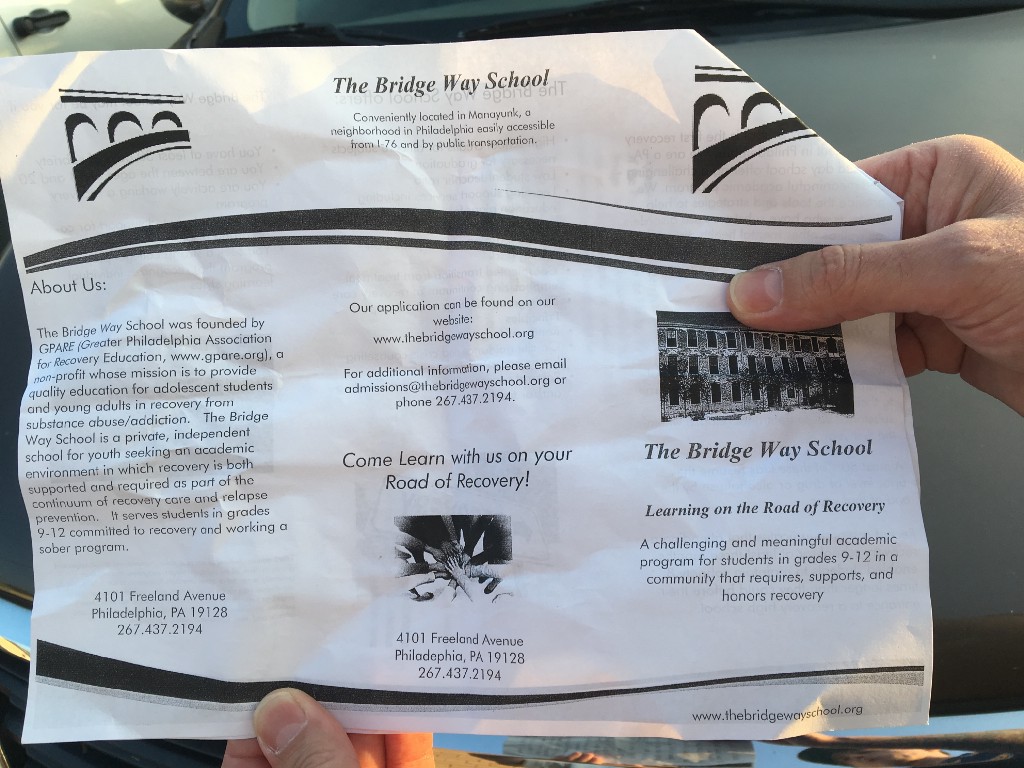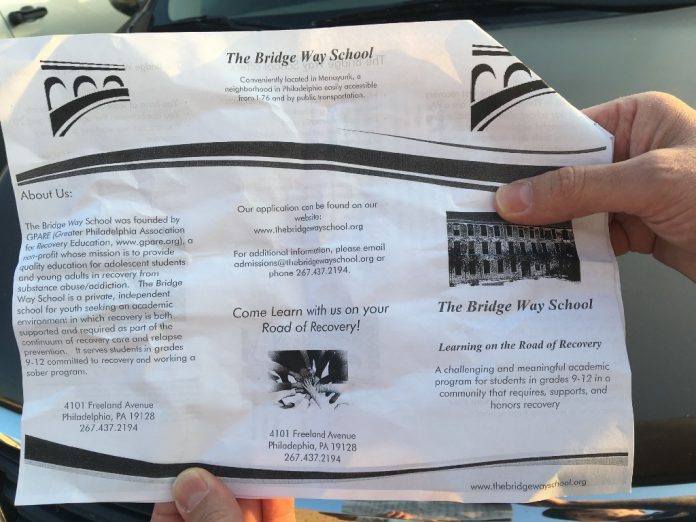The school has nixed plans to come to St. Dominic Catholic School, saying they “would not want to make anyone uncomfortable.”

A contentious meeting of St. Dominic Catholic School parents last week short-circuited an effort by a Northeast-based social service agency to bring the city’s first high school for recovering drug addicts to the Upper Holmesburg parish.
Within days of the June 12 meeting in the parish’s Marian Hall, the coordinating social service agency, Counseling Or Referral Assistance, announced that it would seek another location for the innovative recovery school.
“We will not be coming to St. Dominic’s,” CORA’s director of government and strategic partnerships, Mary Doherty, told the Northeast Times. “We would not want to make anyone uncomfortable in the parish. We came to St. Dom’s first because of our longstanding relationship with the parish. I have been at CORA for 40-some years and have always felt kindly of St. Dominic’s and thought this wouldn’t be an issue.”
CORA’s plan was to help The Bridge Way School to relocate to the parish. Founded six years ago, Bridge Way has been leasing space at 4101 Freeland Ave. in Manayunk, but the lease is about to expire. Among a dozen students enrolled at the end of the 2016–17 school year, six lived in the 19136 zip code, Doherty said. St. Dom’s parish serves much of the same territory.
During the parents’ meeting, Head of School Rebecca Bonner said that Bridge Way serves students from age 14 to 20 in accordance with its Pennsylvania Department of Education certification. Enrollees must have been sober for at least 30 consecutive days and be working on a treatment program including integrated support for co-occurring disorders. The school emphasizes a strong college-prep educational model.
The mission of the school is to offer recovering substance abusers an alternative to a traditional school environment that may jeopardize their recovery, according to Bonner, who said she got interested in the recovery field after her daughter became addicted to opioids.
“To send kids after four or five months (in a recovery program) back to the same environment where they were using is sometimes a death sentence,” Bonner said.
Bridge Way doesn’t provide addiction treatment and doesn’t distribute recovery medications such as methadone. In addition to the sobriety and outside treatment requirements, students must also submit to “random and frequent” drug tests and searches.
“About half of our students are already coming from this neighborhood and they’re working really hard,” Bonner said.
Yet, parents of the parish grade school remained skeptical during the meeting. St. Dom’s school serves about 400 pupils in kindergarten through eighth grade. About 50 adults attended the gathering hosted by the parish’s pastor, the Rev. Edward Kearns.
Parents were notified of the proposal in a letter and information sheet sent home with students earlier this month. They were also notified of the meeting by telephone message.
Bridge Way or the parish needed no formal approval from the city or the civic association to open at St. Dom’s because the site is already zoned for educational use. Doherty said that she and Bonner were expecting to meet with the community had the school parents supported the plan.
But the parents did not support it. They expressed concerns about the mingling of the older recovery students with the grade school kids as well as the potential impact on the community if a recovery student were to relapse.
Kearns said that there would be virtually no contact between the student groups. The recovery school would be housed on the third floor of the parish center, a building that previously served as the parish school. St. Dom’s students now attend classes in a separate, newer building next door, but they visit the old building a couple of times a week for phys ed classes and other activities.
At one point, an audience member asked for a show of hands among parents who intended to remove their children from St. Dom’s if the recovery school were to move there. It appeared as if most of the parents raised their hands.
“I support their recovery, but I pay way too much money for my daughter to go here,” one woman said.
A man echoed the sentiment: “We send our kids here because it’s a safe, controlled environment. You’re bringing another element here.” ••
William Kenny can be reached at 215–354–3031 or [email protected]. Follow the Times on Twitter @NETimesOfficial.





